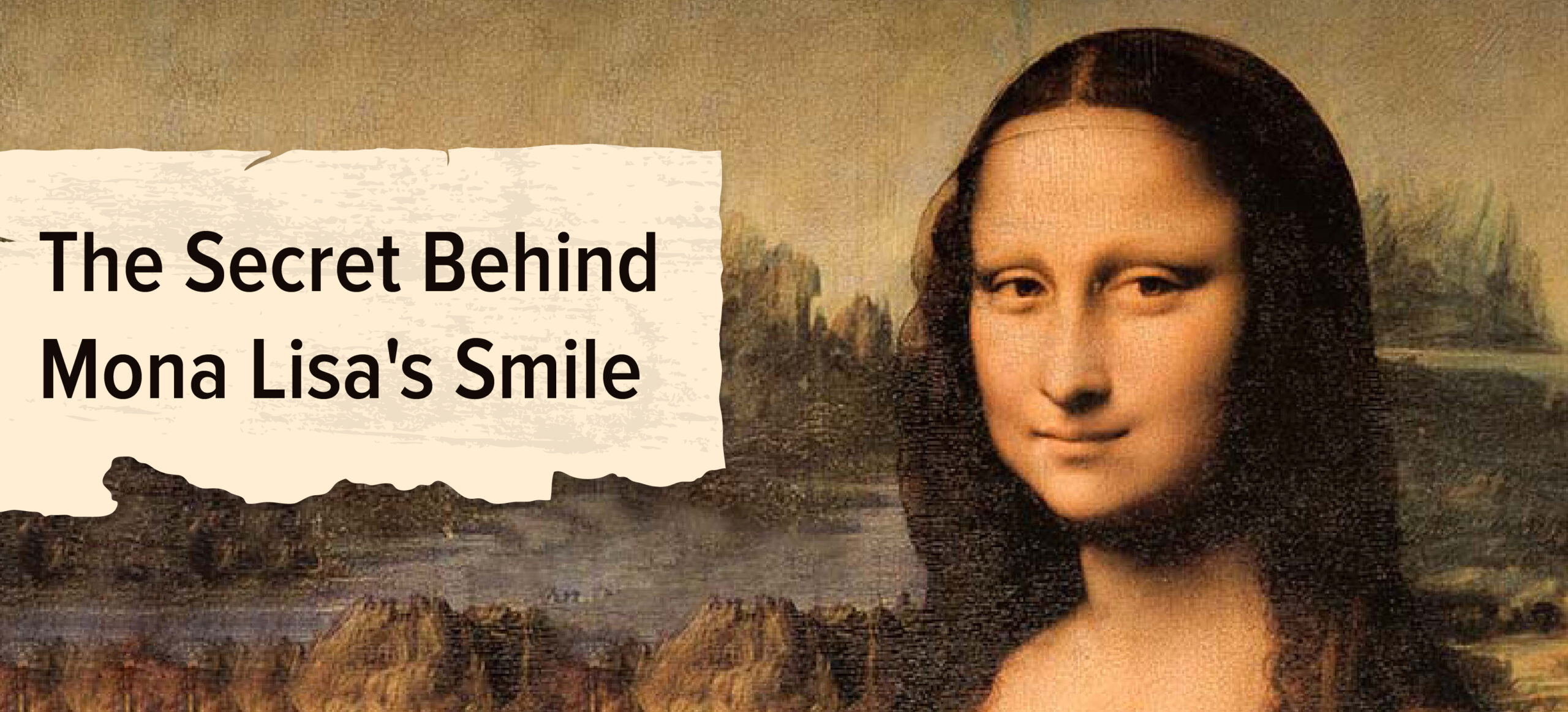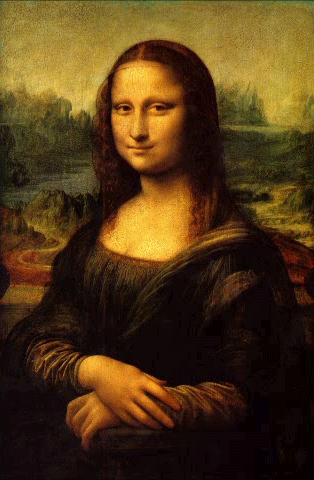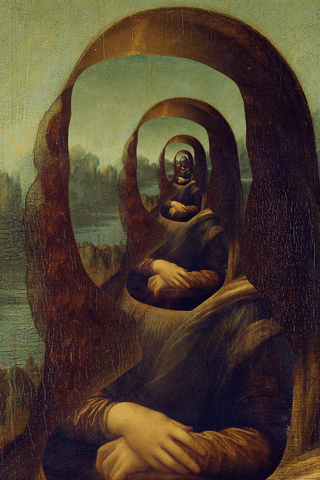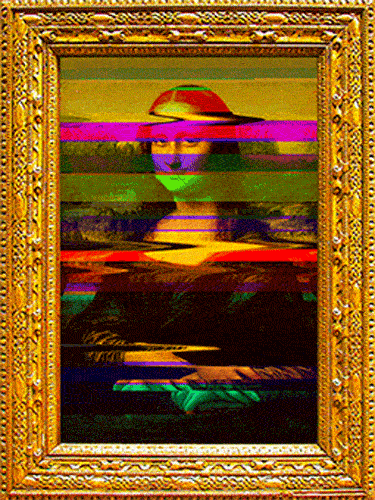
Leonardo da Vinci’s Mona Lisa is arguably the most famous piece of art in the world. Painted in the early 16th century, it depicts a mysterious woman with a barely-there hint of a smile.
In the words of one critic, “The Mona Lisa is the best known, the most visited, the most written about, the most sung about, the most parodied work of art in the world.” It’s hard to argue with that, but how much do you really know about this unmistakable masterpiece?
It is believed that Da Vinci began to paint the Mona Lisa in Florence in 1503 or 1504. It took Da Vinci four years to finish the Mona Lisa. It is not clear exactly when the painting was created. Although the Louvre – the world’s largest art museum and a historical monument housing the original Mona Lisa – states that the Mona Lisa was painted between 1503 and 1506.
Although Leonardo da Vinci began working on the Mona Lisa in the first decade of the 1500s, there is evidence to suggest that he was still refining the painting around 1516 or 1517.

Credit: Giphy
Da Vinci’s right hand was partially paralyzed by 1517, so any finishing touches may have been impossible for him to paint.
A popular piece of evidence used to argue that the Mona Lisa is unfinished is the subject’s lack of eyebrows. In 2007, high-resolution scans were performed on the painting and found that Mona Lisa did once have eyebrows, but they had faded, likely as a result of time and shoddy restoration work.
Also read: Origin Story: Why Do We Say Hello When Answering the Phone?
One of the most enduring mysteries of the Mona Lisa is the identity of its subject. One particularly interesting theory suggested that the painting is actually a self-portrait of da Vinci himself!

Credit: Giphy
Given that the Mona Lisa portrays a woman, that seems unlikely but bear with us. Artist Lillian Schwartz did a digital analysis in which she found similarities between the facial features of Mona Lisa and da Vinci’s Portrait of a Man in Red Chalk, which is thought to be a self-portrait of the artist. Could da Vinci’s famous portrait depict his own face, with a feminine twist?
If you’re shaking your head in disagreement, most scholars are in agreement with you. So who was the woman in the painting?
It is widely believed that she was an Italian noblewoman named Lisa del Giocondo – the wife of a wealthy Florentine silk merchant named Francesco del Giocondo.
The painting was commissioned for her new home and to celebrate the birth of her second son – Andrea.
At that time, in Italy, Mona meant Madonna, which was how all women were addressed (like Mrs) and therefore the name Mona Lisa. The Italian name of Mona Lisa is La Gioconda – Lisa’s marriage name

Credit: Giphy
In the 1960s, the painting went on a tour where it was given an insurance valuation of $100 million. factoring in inflation, a more recent assessment estimated it’s worth at $2.5 billion.
The painting is so valuable that some suggest that the Mona Lisa could be sold to pay off the country’s national debt!
Truly priceless, the painting cannot be bought or sold according to French heritage law.
Origin story: The History and Evolution of Traffic Lights
Mona Lisa’s influence on culture is massive, but the painting measures just 30 inches by 21 inches and weighs 8 kgs.
This famous masterpiece is painted on a poplar plank. Considering Da Vinci was accustomed to painting larger works on wet plaster, a wood plank does not seem that outlandish. Canvas was available to artists since the 14th century, but many Renaissance masters preferred wood as a basis for their small artworks.
One of the most popular reasons for the worldwide appeal of the Mona Lisa is the mysterious smile. Da Vinci used an optical illusion to create this unique smile. Da Vinci painted the Mona Lisa in such a way that the eyes of the Mona Lisa fall directly into the viewer’s focus, while the lips fall just below the periphery of vision.
Whenever the viewer looks into the eyes of the Mona Lisa, the mouth falls into the peripheral vision, so that the facial features of the mouth are somewhat less pronounced; together with a small shade of the cheekbones, this makes the mouth look like a smile.
But as soon as the viewer’s gaze is fixed on the smile, it slowly disappears, as if it were never a smile. Here lies the magic of Leonardo’s skill, which made this legendary painting unique compared to other paintings of its time.
These small points of uniqueness, however, are recognized only by connoisseurs or by those who have studied the painting; this still does not explain why the painting became so famous.
Also Read: Why Is the Titanic Still at the Bottom of the Ocean?
Although in the art world, the painting had always been an acknowledged masterpiece, it wasn’t until the summer of 1911 that it would capture the attention of the world.
When an Italian man named Vincenzo Peruggia stole the Mona Lisa, he never could have guessed her absence would be the very thing that made her the most recognizable painting on the planet.
Newspapers spread the story of the crime worldwide. When the painting finally returned to the Louvre two years later, practically the whole world was cheering.
Due to its tumultuous past and contemporary fame, today, the Mona Lisa is exhibited behind a layer of bulletproof glass. Even in such a unique and controversial display, the painting remains one of the most popular pieces in the Louvre and, unsurprisingly, one of the most viewed and visited paintings in the world.
Raza has been writing since 2008, be it fiction, poetry, or articles on science, politics, and history. He believes that words can change the world, and he uses them to inspire and empower people through his writing. When he is not working, he is watching nature documentaries or playing with his cats.
Comments
Praveen jawahar.A
May 11, 2022
Thank you for the good information
Syed Mustabshara
May 8, 2022
It gave me alot of information about Mona Lisa.
I was always curious about her smile but today all doubt got clear
Sai Sharmishtha
May 5, 2022
It’s all about Mona Lisa’s smile
Sai Sharmishtha
May 5, 2022
Fun fact:- Mona Lisa doesn’t have eyebrows
Anukalp
May 5, 2022
Wow the Mona Lisa painting’s mystery is still unidentified
Tejas
April 28, 2022
Thanks
Sebin
April 22, 2022
Thank u for reminding me I like by ju’s
Shaurya
April 19, 2022
Very interesting story Thank you byju’s
Harsh Upadhyay
April 16, 2022
Thank-you to remind me
DHANISTHA KHERA
April 16, 2022
The Blog Was Very Helpful and Intresting . The Pictures were awesome . In this blog I learnt a lot
Leonardo Da Vinci
April 16, 2022
Still TheMystery is not Solved
Regards
Leonardo Da Vinci
From 1517
Jk The explanation is good no hate okie
Raj Kumar Gupta
April 16, 2022
Thank for the information ?
Prajakta Jamgade
April 15, 2022
The Mona Lisa painting is made by Vincenzo Perugia. This painting drawn in 16th century.
Sona thakur
April 15, 2022
This is amazing and science is my favourite subject ????